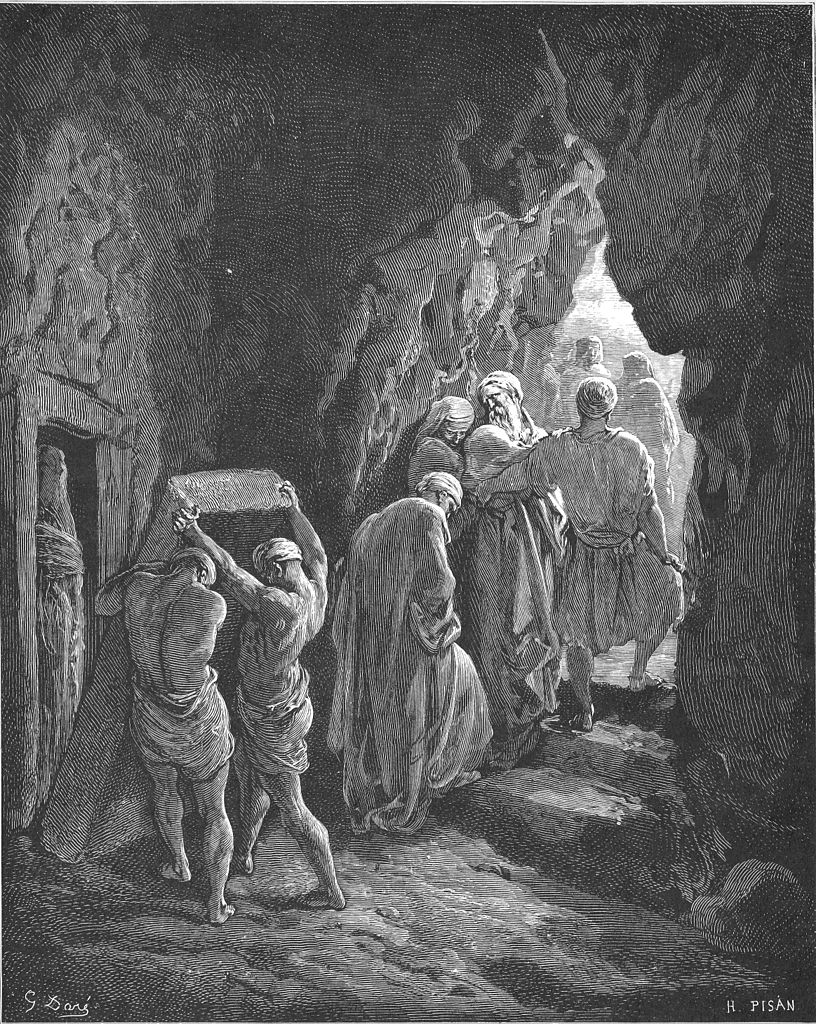Burial of Sarah by Gustave Doré, Genesis 23, Bible.Gallery
Artwork Description

One of the few sites in Palestine that remains undisputed is the cave of Machpelah in Hebron. This sacred location holds deep significance for Jewish, Christian, and Muslim traditions, as it is believed to be the oldest known burial place in the world. According to the shared beliefs, the cave houses the resting places of the three patriarchs, along with their wives (except Rachel, who was buried near Bethlehem), awaiting the resurrection.
For centuries, the mosque built over the cave was strictly restricted to Muslims, and it was not until 1862 that the Prince of Wales gained access to it. However, even esteemed visitors like him were not allowed to enter the actual cave itself.
The first occupant of this hallowed tomb was Sarah, whose passing led Abraham to purchase the land from the sons of Heth. This transaction, recorded in the twenty-third chapter of Genesis, is regarded as the first legal contract in history and aligns with the customary bargaining practices still observed in Oriental regions today.
Sarah, a prominent figure in Scripture, is distinguished as the first woman for whom we receive detailed information, and her age is notably mentioned in the sacred text. She was a loyal companion to Abraham throughout their nomadic journey, though not without her human flaws. Despite her imperfections, the First Epistle of Peter (3:5) praises her, along with other virtuous women of old, for their trust in God.
Abraham's affection for Sarah was profound, and upon her passing, he was deeply concerned with securing a permanent resting place for her remains. The illustration depicted with fine taste portrays him being led away from the cave after the funeral rites, yet casting a sorrowful and eager gaze back toward the place where his beloved wife now lay. This poignant moment exemplifies the test and strength of his faith.
Although Abraham had received numerous divine assurances that the land would belong to his descendants, he never personally owned any of it except this sepulchre. Nonetheless, Hebron remained inseparably associated with him, and the Arabs have known it for centuries by the name "El Klutlil," meaning "The Friend," in reference to the honorable title "The Friend of God" bestowed upon him thrice in Scripture.